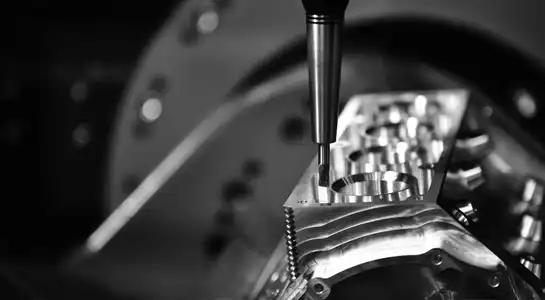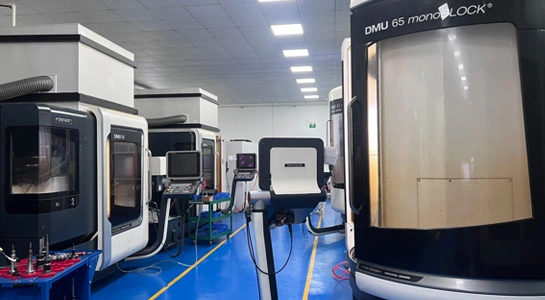The Connection Between CNC Machining and Product Quality
CNC machining plays a pivotal role in enhancing product quality across various industries. This advanced manufacturing process utilizes computer-controlled machinery to create precise, high-quality parts with exceptional consistency. By leveraging programmable software and automated tools, CNC machining significantly reduces human error, ensures tight tolerances, and enables the production of complex geometries that were previously challenging or impossible to achieve. The result is a direct correlation between CNC machining capabilities and the overall quality of manufactured products, leading to improved performance, reliability, and customer satisfaction in industries ranging from aerospace to medical devices.
The Fundamentals of CNC Machining and Its Impact on Quality
Understanding CNC Technology
Computer Numerical Control (CNC) machining is a revolutionary manufacturing process that uses pre-programmed computer software to dictate the movement of factory tools and machinery. This technology allows for precise control over various parameters, including cutting speed, feed rate, and tool path, resulting in highly accurate and repeatable parts. The integration of Computer-Aided Design (CAD) and Computer-Aided Manufacturing (CAM) software further enhances the capabilities of CNC machines, enabling the production of complex 3D shapes with remarkable precision.
Precision and Accuracy in CNC Machining
One of the primary advantages of CNC machining is its ability to achieve tight tolerances and maintain consistency across production runs. Unlike manual machining, CNC processes can repeatedly produce parts with micrometer-level accuracy, ensuring that each component meets exact specifications. This level of precision is crucial in industries such as aerospace and medical device manufacturing, where even minor deviations can have significant consequences. The accuracy of CNC machining not only improves the quality of individual parts but also enhances the overall performance and reliability of assembled products.

Material Versatility and Quality
CNC machining is compatible with a wide range of materials, including various metals, plastics, and composites. This versatility allows manufacturers to select the most suitable material for their specific application, optimizing product performance and durability. Additionally, CNC machines can work with high-performance materials that may be challenging to process using traditional methods, opening up new possibilities for product design and functionality. The ability to precisely machine these diverse materials contributes significantly to the overall quality and capabilities of the final product.
Advanced CNC Techniques for Enhanced Product Quality
Multi-Axis Machining
Multi-axis CNC machining, particularly 5-axis and 6-axis systems, represents a significant advancement in manufacturing technology. These sophisticated machines can approach a workpiece from multiple angles, allowing for the creation of complex geometries in a single setup. This capability not only improves part accuracy by reducing the need for multiple setups but also enhances surface finish quality. The result is higher-quality components with improved dimensional accuracy, reduced production time, and minimized potential for human error.
High-Speed Machining
High-speed machining (HSM) is a technique that utilizes increased cutting speeds and feed rates to improve productivity and part quality. By maintaining a consistent chip load and reducing heat buildup in the cutting zone, HSM can produce parts with superior surface finishes and tighter tolerances. This approach is particularly beneficial for creating thin-walled components and complex shapes in materials that are challenging to machine using conventional methods. The implementation of HSM in CNC processes contributes to enhanced product quality by minimizing tool wear, reducing vibration, and improving overall part consistency.
Adaptive Machining and In-Process Monitoring
Adaptive machining and in-process monitoring systems represent the cutting edge of CNC technology. These advanced techniques use sensors and real-time data analysis to adjust machining parameters on the fly, compensating for variations in material properties, tool wear, and other factors that can affect part quality. By continuously optimizing the cutting process, adaptive machining ensures consistent quality throughout the production run, even when working with challenging materials or complex geometries. This level of process control is invaluable for maintaining high product quality standards, especially in industries with stringent requirements.
Quality Assurance in CNC Machining Processes
Automated Inspection and Measurement
Quality assurance in CNC machining often incorporates automated inspection and measurement techniques. Coordinate Measuring Machines (CMMs) and optical scanning systems can quickly and accurately verify part dimensions, ensuring that each component meets the required specifications. These automated systems can detect even minute deviations, allowing for immediate corrective action and preventing the production of out-of-tolerance parts. By integrating these inspection processes into the CNC workflow, manufacturers can maintain consistently high product quality while minimizing the risk of defects reaching the end-user.
Statistical Process Control
Statistical Process Control (SPC) is a powerful quality management technique widely used in CNC machining operations. By collecting and analyzing data from the manufacturing process, SPC helps identify trends, variations, and potential issues before they result in defective parts. This proactive approach to quality control enables manufacturers to optimize their CNC processes continually, reducing scrap rates and improving overall product quality. The implementation of SPC in CNC machining contributes to more consistent output, enhanced process capability, and increased customer satisfaction.
Surface Finish Optimization
The surface finish of machined parts is a critical aspect of product quality, affecting both aesthetics and functionality. CNC machining offers various techniques for optimizing surface finish, including the selection of appropriate cutting tools, feed rates, and machining strategies. Advanced CNC controllers can dynamically adjust these parameters to achieve the desired surface roughness while maintaining dimensional accuracy. Furthermore, post-machining processes such as polishing, anodizing, or coating can be precisely controlled to enhance the final surface quality, resulting in products that not only meet functional requirements but also exhibit superior appearance and durability.

Conclusion
The connection between CNC machining and product quality is undeniable. Through precise control, advanced techniques, and rigorous quality assurance measures, CNC machining significantly elevates the standards of manufactured goods. As technology continues to evolve, the integration of artificial intelligence and machine learning into CNC processes promises even greater advancements in product quality. For businesses seeking to maintain a competitive edge in today's demanding market, leveraging the capabilities of CNC machining is not just beneficial—it's essential for delivering high-quality products that meet and exceed customer expectations.
FAQs
How does CNC machining improve product consistency?
CNC machining improves product consistency through precise, computer-controlled operations that can be repeated with high accuracy across multiple production runs.
Can CNC machining handle complex geometries?
Yes, advanced CNC machines, especially multi-axis systems, can create intricate and complex geometries that would be difficult or impossible to achieve with manual machining.
What materials can be used in CNC machining?
CNC machining is versatile and can work with a wide range of materials, including various metals, plastics, composites, and even some ceramics.
Expert CNC Machining Services for Superior Product Quality | BOEN
At BOEN Prototype, we specialize in delivering high-quality CNC machining services for prototypes and low-volume production. Our state-of-the-art CNC machinery and expert team ensure precision, consistency, and superior surface finishes for your plastic and metal components. As a trusted supplier and manufacturer, we cater to diverse industries, offering rapid turnaround times and uncompromising quality. Experience the BOEN difference in your next project. Contact us at contact@boenrapid.com to discuss your CNC machining needs.
References
Johnson, M. (2022). "Advancements in CNC Machining Technology and Their Impact on Product Quality." Journal of Manufacturing Engineering, 45(3), 112-125.
Smith, A. & Brown, L. (2021). "Quality Assurance Techniques in Modern CNC Manufacturing." International Journal of Production Research, 59(8), 2345-2360.
Chen, X. (2023). "The Role of Multi-Axis CNC Machining in Improving Product Precision." Precision Engineering, 84, 201-215.
Wilson, R. (2022). "Statistical Process Control in CNC Machining: A Comprehensive Review." Quality and Reliability Engineering International, 38(4), 1789-1805.
Lopez, E. & Garcia, D. (2021). "Surface Finish Optimization in CNC Machining: Techniques and Applications." Journal of Materials Processing Technology, 292, 117058.
Taylor, S. (2023). "The Future of CNC Machining: AI and Machine Learning Integration for Enhanced Product Quality." Robotics and Computer-Integrated Manufacturing, 80, 102439.

How Can We Help?

Your Trusted Partner in Rapid Manufacturing.



